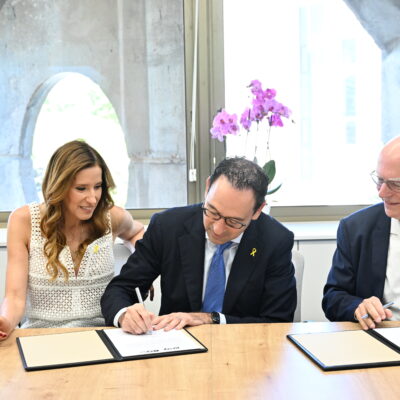The Fundraising Event: Is Now The Time?
Is now the time to plan for the major fundraising event?
Major organizations often plan for an annual or bi-annual dinner event. Others have an activity that brings people together and garners both financial support and identification with the organization. The question is whether these events are appropriate today, and if they will yield the desired results? If they are not, then what should be done to achieve the same results for the agency because the financial needs have not been reduced, and in all likelihood they have increased given the present recession?
There are a number of steps that need to be taken when considering the best way to raise funds from special events. The first is for the board of directors to consider the issue by initiating a discussion with the finance committee or a fundraising committee. The members of the board need to be involved in exploring both the financial needs as well as the most effective way of meeting those needs.
A number of questions need to be answered during this process that will lead to both clarifying the organization’s approach during difficult times and strengthening its standing in the community. Whatever is decided has to demonstrate the success of the organization in continuing to receive support from members of the community. Board members, as representatives of the community, along with the professional staff are usually in a good position to determine what approach will be the most successful in raising the needed funds.
If the board is enthusiastic about planning a major fundraising event and a number of the significant supporters believe they will be receive gifts from the major donors then the annual luncheon, theater party, or dinner should be planned. A guest or guests of honor should be selected and additional gifts may be solicited from people who want to participate in recognizing the honoree(s). In many cases, these events have the potential to be the social happening of the year for a community.
However, when the board members, committee members, and/or the staff do not think that this approach is best it needs to be reconsidered. It could be due to the financial crisis, or there might have been too many such events in the community, or contributors sometimes grow tired of these large events when they know that a significant amount of money is being used to cover the event’s costs and there is a very small net yield to the organization. Even though there are multiple reasons for sponsoring a large fundraising event, it is quite possible that the leadership will decide not to pursue this course.
What should an organization do when the leadership is not convinced or enthusiastic about conducting major fundraising event. Just because the fundraising activity is not going to be a “big hit” does not mean all fundraising efforts should be suspended. The discussion needs to focus on the alternative types of fundraising activities that can achieve similar results for the non-profit organizations.
Non-profit organizations have begun to use an innovative approach and have sponsored the “non-event” fundraiser. The idea is to solicit donations for the agency by sending an invitation for a “virtual event”. Although the invitees receive an invitation and there is a request for a donation, the contributor is told that funds sent will be used to support the agency’s programs and services and not for the cost of a lunch or dinner.
The contributor knows their funds are not going to a caterer or to an event planner. The donations go directly to benefit the recipients of the services and the agency has an opportunity to publicize how their fundraising event for the year is taking a special twist given the economic situation. Of course there will be a variety of responses to this approach and some donors will be very enthusiastic and increase their involvement in the campaign while other donors may respond by maintaining their same level of support.
The “virtual” fundraising event provides many opportunities for branding the agency in a very positive light among the non-profits in the community. The staff and board of the organization should be planning not only for the event but also for using this fundraising approach to strengthen the agency’s image in the community. As people in the broader community learn about the decision to develop the “virtual” event they maybe more interested in identifying themselves with the organization. Thus, new donors are attracted, and it is a way to strengthen the board of directors as members of the community respond to the organization’s creativity and openness in employing different approaches to fundraising.
During these challenging times, community supported non-profit organizations need to be creative in marketing themselves and appealing to donors and potential donors for contributions. The agency’s strength lies in its use of the professional and lay leadership in planning and implementing fundraising activities. All of us involved in voluntary organizations should be open to testing out a variety of approaches and this is one response to the present situation. If you have others, please feel free to share them with me.
Stephen G. Donshik, D.S.W., is a lecturer at Hebrew University’s International Leadership and Philanthropy Program and has a consulting firm focused on strengthening non-profit organizations and their leadership for tomorrow. Stephen is a regular contributor to eJewish Philanthropy.














